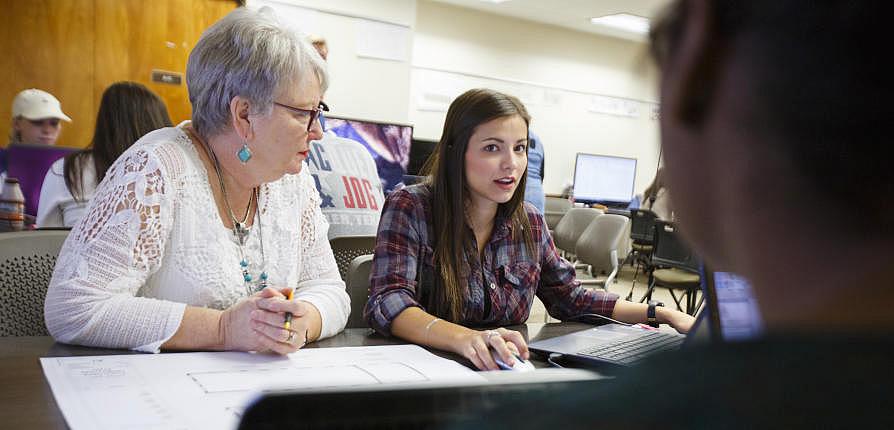For faculty members, aligning their mentorship with specific learning objectives is critical in shaping a student’s development. The following mentoring practices are offered as ideas to help empower the student, build healthy research habits and ensure success.
Establish clear expectations
- Articulate the goals, scope, and expectations of the research project.
- Discuss the student's role, responsibilities and anticipated outcomes.
- Set realistic timelines and milestones to keep the project on track.
Define learning objectives
- Establish learning objectives that align with the student’s academic and professional goals.
- Identify skills and knowledge areas that the student should develop through the research process.
Provide research training
- Offer training sessions on research methodologies and tools relevant to the project.
- Introduce the student to ethical considerations and guidelines in research.
Communicate regularly
- Schedule regular meetings to discuss progress and goals.
- Create a supportive environment for the student to share ideas.
Encourage independent thinking
- Foster the development of critical thinking and problem-solving skills.
- Empower the student to take ownership of the project and make independent decisions.
Provide networking opportunities
- Introduce the student to relevant professional networks and research communities.
- Encourage participation at seminars, workshops and conferences to broaden the student's understanding of the field.
Provide constructive feedback
- Offer feedback that will help the student develop research proposals, methodologies and findings.
- Guide the student in refining work.
Celebrate achievements
- Acknowledge milestones and achievements.
- Provide a positive and motivating environment to help build the student's confidence.
Promote collaboration
- Foster interaction with other researchers.
- Encourage the student to engage in interdisciplinary discussions and collaborative projects.
Support professional development
- Assist the student in preparing research presentations, posters and papers for conferences or publications.
- Offer guidance on crafting a strong curriculum vitae and pursuing further academic or professional opportunities.
Address challenges and make adjustments
- Provide guidance on overcoming setbacks. These are opportunities to adapt during the research process.
- Regularly reflect on the mentoring process and be willing to adjust strategies based on the student's evolving needs.
 Axe ’Em, Jacks!
Axe ’Em, Jacks!
